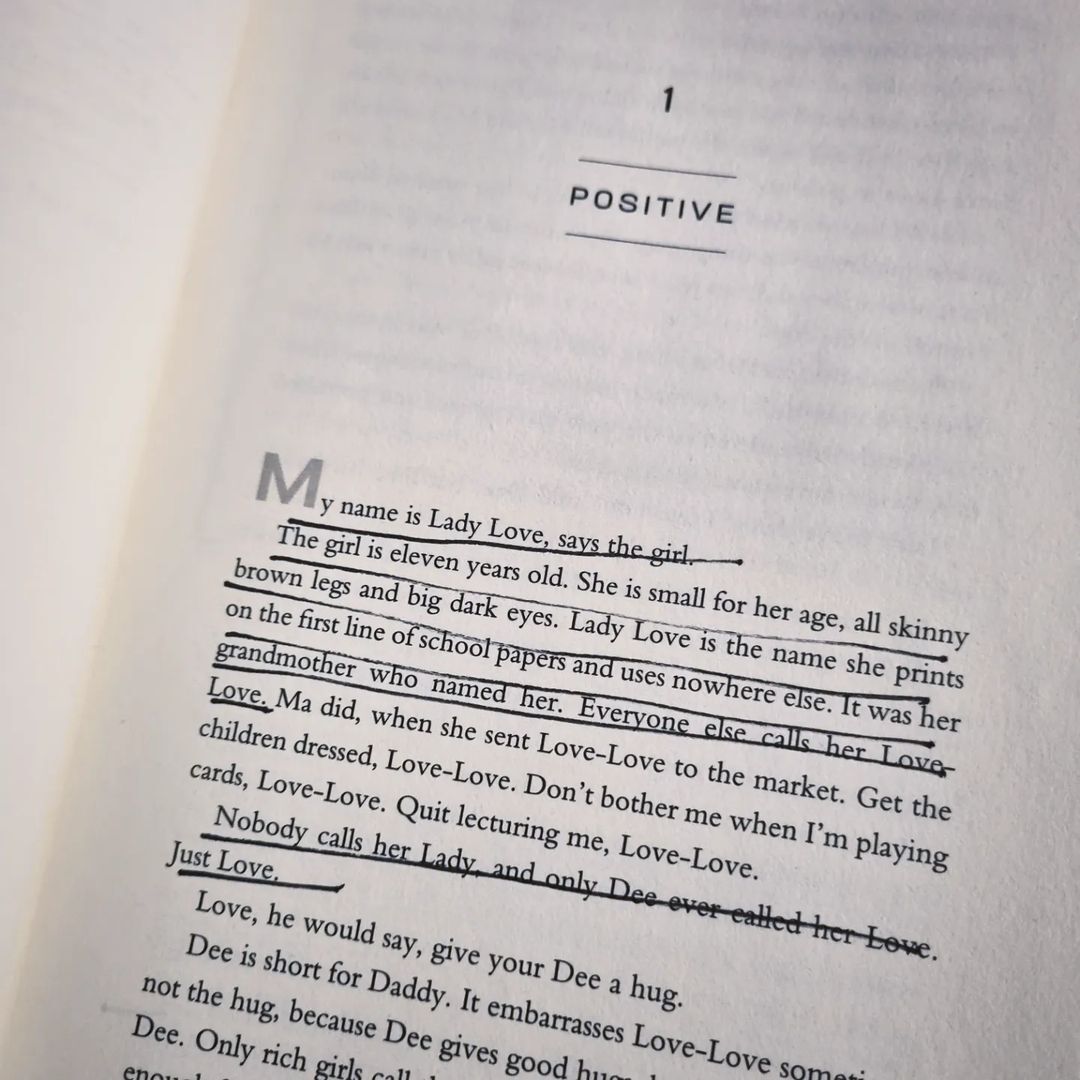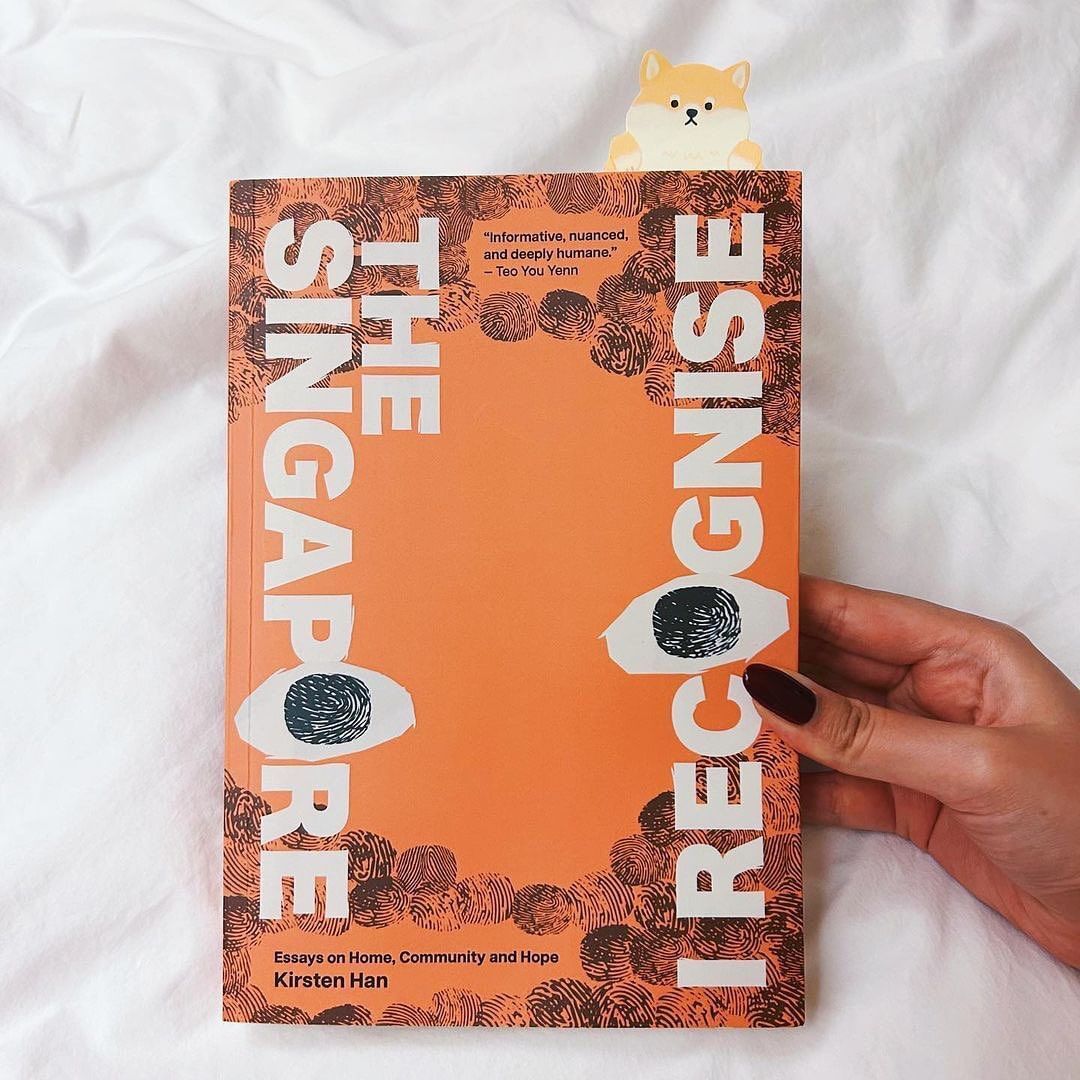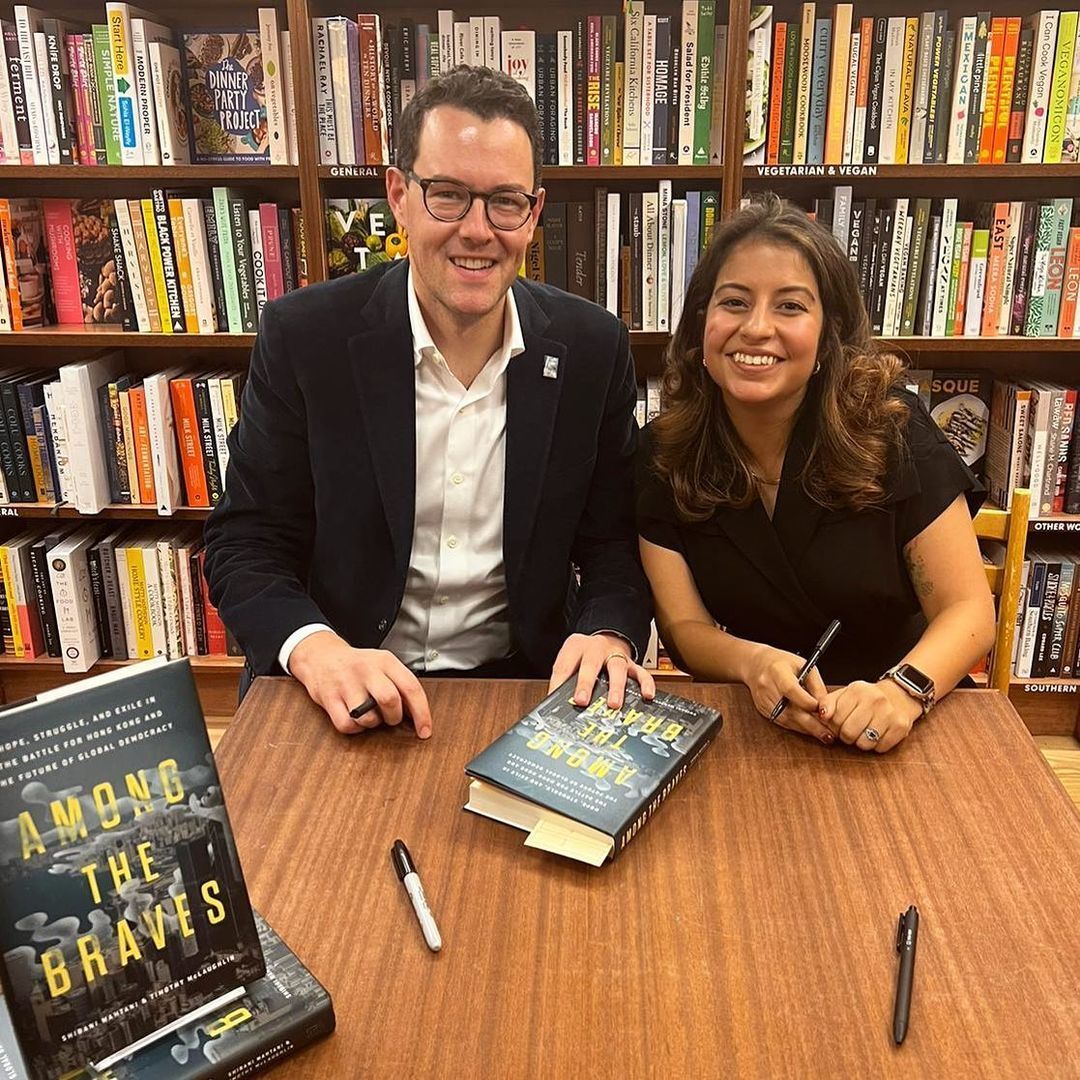- Dari Mulut ke Mulut
- Posts
- 📚 A year in reading: from the back streets of Tondo to the tense family tables of Washington in the 60s
📚 A year in reading: from the back streets of Tondo to the tense family tables of Washington in the 60s
A brief bout of stair stacking brain damage won't stop this gal from reading everything
Hello friends!
By Sunday afternoon, I will have read 92 books this year. Which is down on last year but still a second-place record so I’m trying not to be weird about it. Below are some of my faves, though not necessarily published this year and I’m telling you they’re all great.
What have I missed? Put it in the comments for a 2024 TBR!
Until Sunday, I’m offering 50% off a new annual subscription — so that’s USD $30 for 2024 and locked in at $60 for the years ahead. If this newsletter project has brought value to your inbox, please consider supporting it.
If you can’t — or are already subscribed! — please think about forwarding to a friend or colleague who might be interested. Word of mouth (hey! That’s the name of the newsletter!) is the number one way for people to find this and it’s such a valuable show of support.
See you in the new year!
Erin Cook
How to Stand Up to a Dictator - Maria Ressa
I was in two minds about picking up the memoir of Nobel prize-winning journalist and freedom of the press advocate. We know her story so well — a storied journalist launches a new platform with equally impressive friends and eventually then-president of the Philippines, Rodrigo Duterte, loses his damn mind over it. He then tries to shut her and Rappler up on tireless reporting of his disgusting war on drugs. It never quite worked for Duterte. The bodies piled up, but legal challenges frequently validated the defendants' claims against his tirades and cases.
But this isn’t really about Ressa. This is about Rappler and this is a warning that if we don’t rein in the world’s tech-overlords one day everyone’s lawmakers could look like Duterte. She recounts in pure fury the many times she attempted to warn Facebook, still riding high off the PR win of the Arab Spring, but was repeatedly rebuffed. In the year since this came out the mega-giant still seems happy to be focusing on Western countries rather than those in Asia, Africa and Latin America that are effectively used as laboratories to test out nightmare engineering techniques before exporting them elsewhere. Light reading, then!
All of these attempts to raise the alarm came to nothing, so it is hardly surprising that Ressa’s inspiring book has an impassioned, frustrated and, at times, angry tone. She saw the future and knew how it didn’t work for democracy. And nobody except the Nobel committee seemed to be paying attention. For which mercy, much thanks.
Some People Need Killing - Patricia Evangelista

When Patricia Evangelista’s debut, subtitled A Memoir of Murder in My Country, appeared on the New York Times’ best books of the year it somehow didn’t seem enough. Evangelista is a Rappler journalist who covers the ‘trauma’ beat and when Rodrigo Duterte won power with a promise to ‘kill them all,’ that meant something very specific. The first half of this looks at how the Philippines got to this point — what stood out to me here is that every decade (or less!) has ground-shattering collectively traumatic events and developments that Evangelista stresses are quickly moved on from because they have to be. The second traces the stories of a handful of Filipinos killed and what has happened to their families since as they seek justice.
I’ve asked two women whose tastes (and Philippines takes) I always trust — one a foreigner who lived in Manila during much of the Duterte period and a Filipina who works in conflict spaces — and both said they’ll give it a few years. Both are even more familiar with Evangelista’s work than I am and know she’s immensely capable — so capable that they’ll be devastated all over again. It’s true, too. I took a week to read the second half of the book, short sessions of a few pages because Evangelista is such a talent that the effect of reading IS like going back in time and re-feeling that visceral feeling when you read the Kian Delos Santos headlines, for instance.
Evangelista is an immense talent who has done extraordinarily well by her subjects here and I can’t wait to see what she does next.
“And then—and this is the new thing—and then you learn to stand still and listen for the screaming. That’s how you find out who the family is. And then you go up to them, you apologize, you console, you keep your voice low. You ask simple questions. What was his name? When did you last see him? How did you know he was gone?” - Pat Evangelista explains the process to New Yorker’s David Remnick
Return of the Junta - Oliver Slow
One annoying thing about me this year is I love to nod my head and then say: ‘have you read Return of the Junta yet?’ Slow began writing this overview of Myanmar’s armed forces, known as the Tatmadaw, years before we’d heard of COVID-19 and before Feb. 1, 2021 had any significance. The sudden and definitive shutdown in travel hasn’t impeded anything in this work that takes on the history of the military in Myanmar as well as a few chapters looking at the long arms the institution has in other aspects of public life, like health and education.
I’ve been thinking of giving it a reread recently as Operation 1027 turns into a much longer and more consequential movement. The military is unlikely to collapse any time soon, the smart money says. But the even smarter money says: read this one to better understand why that’s the case.
The empire struck back: Oliver Slow’s ‘Return of the Junta’ reviewed (Frontier Myanmar)
Elsewhere, though, the book does justice to the country’s hugely diverse struggles. In sections on systematic discrimination against Christians in Chin State, the military’s expropriation and subsequent pollution of farmland in Sagaing Region, and the fraying ceasefire in Kayin State, he shows that the roots of this conflict and oppression go deep. However, not all accounts from the country’s peripheries are laden with doom. A trip to Kayah State shows how the country’s fledgling tourism industry before the coup was benefiting communities on the margins.
Brown is Redacted: Reflecting on Race in Singapore - edited by Kristian-Marc James Paul, Mysara Aljaru and Myle Yan Tay
I’ve only ever found gold via Ethos Books, the Singaporean indie publisher behind everything good I ever read about SG (It’s true — this isn’t the only time they’ll be mentioned in this email!). This is extra compelling, however.
A collection of essays on race and race relations in the city-state, the trio behind the collection went out of their way to find the widest selection possible. It’s paid off. Saif Tamal’s diary under COVID lockdown in his migrant worker dorm rooms is a stunning addition, as is the interview with rapper ashisdead, whose time spent incarcerated adds extra depth to his generous musings on the experience of Brown men in Singapore.
Very impressive work from everyone involved here and ought to be added to any serious Singapore reading list for years to come.
Knowing and embodying (Mekong Review)
In Mysara Aljaru and Kristian-Marc James Paul’s lecture-performance Brown Is Haram, two Singaporean minorities are questioned by a pair of Chinese Singaporean policemen who speak to each other in Mandarin. The policemen know they cannot be understood. While English is the island’s official lingua franca, Singaporeans are taught a different ‘mother tongue’ based on their ethnic parentage.
“Normally I can just tune out, like it becomes background noise. But this specific night, I remember, I couldn’t stop hearing it. I couldn’t think because it was everywhere. In my ears, in my head.”

May as well pop Kirsten Han in right next to imprint pals Brown Is Redacted. Those of us who subscribe to Kirsten’s excellent We, the Citizens newsletter have followed along somewhat on the process of her putting together this thoughtful and very timely essay collection. Part memoir, part polemical — the true Kirsten Han style, if you ask me — the book looks at the many sprouts of activism in the city, even as the government tries to concrete right over the top.
Kirsten’s work towards the abolition of the death penalty has always really stood out to me, so it’s the parts in which she reflects on both how civil society navigates this policy and how she came to be so passionate that really grabbed me the most. But, I will say any time she hangs out with an oldie who cut their activist during the deliberately-forgotten periods of upheaval during the 20th century, there’s something something especially special in those moments.
I think the president’s office is the only avenue left that can help to foster a more inclusive, compassionate Singapore. The release of Kirsten Han’s The Singapore I Recognise perfectly coincides with this election. If the president is truly interested in the work this generation of activists are undertaking, he would do well to read Kirsten’s book. She narrates the remarkable and often bizarre experience of activists who have to negotiate a minefield of oppressive legislation on a daily basis. Forty years ago, my contemporaries and I treaded the civil society terrain cautiously worrying about the OB (out-of-bounds) markers that we might inadvertently cross. The Internal Security Act (ISA), which among other things, empowers the government to detain without trial those it deems a security risk, hung over our heads like a Sword of Damocles. Kirsten and her generation of activists know exactly what the terrain holds for them and they go ahead anyway.
Billion Dollar Whale - Bradley Hope and Tom Wright
Yeah, yeah. Najib Razak’s in the slammer, Hope and Wright are on to other projects and 1MDB is a cautionary tale to Southeast Asia. But I spent a lot of time in Penang this year and Jho Low, the island’s naughtiest son, remains as fascinating as ever so I gave it another read.
My friend Nadia describes this one as ‘a thriller you forget is real’ and she’s right. The HUBRIS of these men! Scoundrels!
If you like global intrigue, financial crime, wealth porn, and absurdity, “Billion Dollar Whale,” by Tom Wright and Bradley Hope, is for you. It’s the story of Jho Low, an enterprising businessman from Malaysia who used his social connections to the country’s former Prime Minister Najib Razak to transform himself into an international financier. According to Wright and Hope’s account, Low persuaded Razak to create an investment fund, 1MDB, financed with government money, which Low managed behind the scenes. Goldman Sachs and other banks helped raise ten billion dollars for the fund. Then approximately five billion dollars of the money disappeared, prompting an international scandal.
The Jakarta Method - Vincent Bevins
Something strange happened to men when I returned to Canberra during the pandemic. ‘Do you know Vincent Bevins?’ ‘Have you met Vincent Bevins?’ etc etc the lefty boys would ask. These are fellas who, over a pint, will happily listen to me rant about Indonesian politics or join in, after a few more pints, as we rehash Howard’s case for dragging us to Iraq. But what happened to Indonesia in 1965 was never on the radar. So is the power of Bevins’ debut work that I reread during a ‘65 kick earlier in the year. I think it’s very, very rare for a book like this to go (relatively) mainstream and break out of the ‘Area studies’ type markets and that ought to be celebrated. More of this!
More than a new history of the Cold War, though, The Jakarta Method is an elegy. Like the term Third World, Jakarta used to have a different meaning. In the initial years after World War II, the “Jakarta Axiom” signified a US tolerance for neutral Third World nations — a policy of nonaggression. That changed after a US-backed coup in Indonesia targeted communists, killing anywhere from 500,000 to three million people. When Cuba hosted the 1966 Tricontinental Conference and created OSPAAAL, Indonesia — which helped create the movement for Third World solidarity — was in the midst of its brutal slaughter. By the 1970s, the “Jakarta Axiom” of neutrality was a distant fantasy. The “Jakarta Method” now meant a genocidal approach to anticommunism, so powerful that the city’s name was used to sow fear through graffiti in countries flirting with socialism, as distant as Chile. Jakarta became a metonym for the death of Third World sovereignty.
Future Forward: The Rise and Fall of a Thai Political Party - Duncan McCargo and Anyarat Chattharakul
Technically, Future Forward no longer exists. Founded by Thanathorn Juangroongruangkit and Piyabutr Saengkanokkul back in 2018, the pro-democracy party had a decent showing in Thailand’s 2019 elections and then the courts said thanks, but no thanks and banned it the following year. No bother, twist that orange triangle logo on its side and let's call it Move Forward.
This isn’t about Move Forward. You won’t find Pita Limjaroenrat in here much, nor will you find any indication that the successor party would soon have an incredible win in the 2023 general election, succeeding even its own wildest dreams of ending up on top (before all that other junk, of course). But it’s impossible to understand, fully, how we got here before we know how Thanathorn and Piyabutr got there.
Capsule review (Foreign Affairs)
This pithy and accessible book charts the short life of Future Forward, a progressive political party founded in 2018 that, until its dissolution in 2020, challenged Thailand’s authoritarian political order. The authors sketch the party’s leadership, including its charismatic co-founder the tycoon Thanathorn Juangroongruangkit; its progressive ideological platform; and its supporters. Quietly simmering under the narrative are concerns about whether the movement can be revived and whether it represented a new kind of party or merely put a new spin on a conventional model centered on high profile, charismatic leaders.
Special mentions! These are books that aren’t really in the Dari Mulut ke Mulut frame of things, but I enjoyed so much I wanted to share anyway:

Readers of Southeast Asia reporting are very familiar with the Shibani Mahtani and Timothy McLaughlin bylines, but here the two turn their extraordinary abilities onto Hong Kong and the desperate fight for democracy there in Among the Braves. I really appreciate the concise history of Hong Kong and how it ended up here in the opening chapters, but the deeply personal profiles in the subsequent chapters are really something to behold.
No corner of Southeast Asia has remained dry as the Hallyu wave continues to wash over. There’s something deeply fascinating (and somehow both nefarious and inspirational?) about South Korea’s concerted effort to develop its culture for export. In Flawless, NPR correspondent Elise Hu explores South Korea’s cosmetics industry which, in part, explains why every single Watson’s from Denpasar to Chiang Rai looks the damned same. Boring for the culture, but makes for great book reading.
Craig McNamara, the only son of former US secretary of defence Robert McNamara, has ruined all other memoir for me. His slow, thoughtful measure of his life in relation to his father is gorgeous. He pulls no punches and confronts the questions his father refused to — he called the dang thing Because Our Fathers Lied, he’s serious about it — and it’s stuck with me for months.
I got a bit into juicy reads about that crossover of tech and finance this year. I wanted to flag two of those. In the Lazarus Heist, Brit journalist Geoff White traces ostentatious bank hacks out of North Korea. No spoilers, but by the time this cash hit the Philippines I had to slow down and sketch out the money flow. A fun read if you forget what it meant for Bangladesh and other victims. There were a load of crypto books released this year and for reasons unknown: I read all of them. Number Goes Up by Zeke Fox is my favourite one because he explores how crypto was (is, probably) being used in the scams coming out of the Cambodian scam compounds. I thought it was really cool how he went out there and hooked up with Mech Dara, especially, to really get into it and I think these chapters have become an excellent addition to the growing body of fantastic work on this hideous story.
Reply